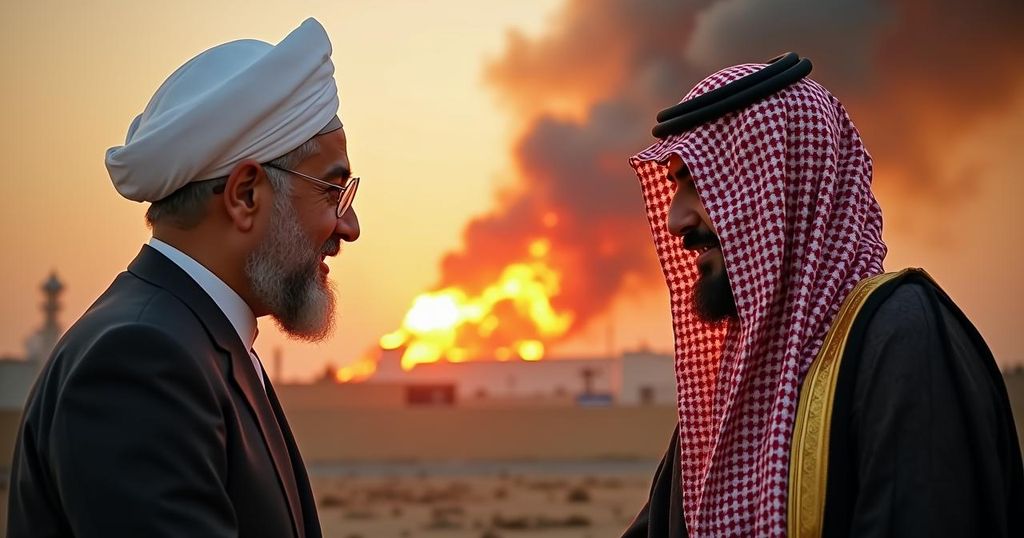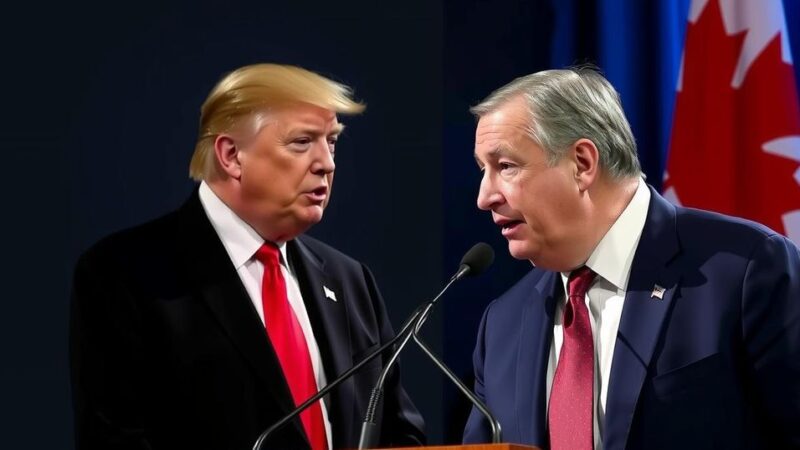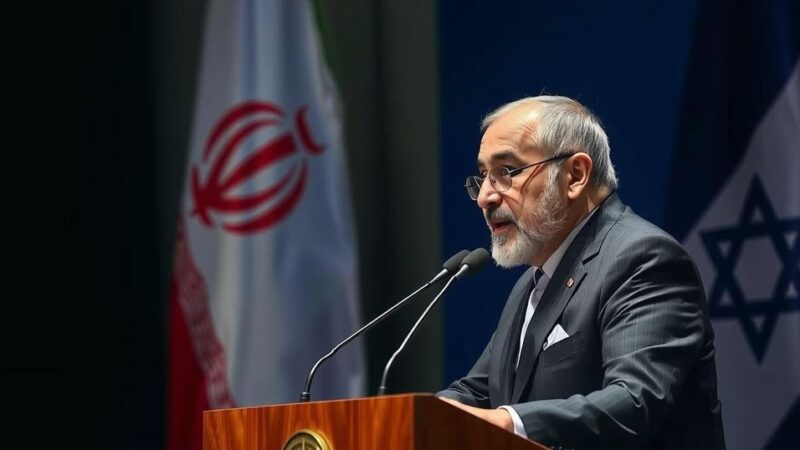Iran has threatened to strike Saudi oil sites if the Gulf state permits Israeli attacks, as warned by Iranian Foreign Minister Abbas Araghchi during a visit to Riyadh. The fragile truce between Iran and Saudi Arabia is at risk amid escalating regional tensions, particularly following recent military actions involving Israel and Iran. Analysts stress that any hostilities could severely impact global oil prices, given Saudi Arabia’s major role in oil production.
Iran has issued a significant warning to Saudi Arabia regarding potential military action against its oil installations if the Gulf nation facilitates Israeli attacks. This directive was conveyed by Iranian Foreign Affairs Minister Abbas Araghchi during his recent visit to Riyadh, according to reports from Reuters. The fragile peace established between Iran and Saudi Arabia is at risk of disintegration, primarily if Saudi Arabia allows Israel access to its airspace for strikes against Iran. During the visit, Minister Araghchi explicitly cautioned Saudi officials that allowing such military incursions would elicit a robust response from Iran, potentially involving Iranian-supported militias positioned in Iraq or the Houthi militants in Yemen targeting Saudi interests. Ali Shihabi, a Saudi analyst affiliated with the royal court, remarked on this situation, stating, “The Iranians have stated: ‘If the Gulf states open up their airspace to Israel, that would be an act of war.'” In parallel reports, The Wall Street Journal highlighted that Iran has covertly signaled a readiness to target Gulf states and U.S. allies in the region if their territories are utilized by Israel for operations against Iran. Among the nations Iran has threatened are Jordan, the United Arab Emirates, Saudi Arabia, and Qatar. The context of these developments is marked by heightened regional tensions, especially following Israel’s intensified operations against Hezbollah in Lebanon and Iran’s missile retaliation on October 1. Israeli officials have expressed a commitment to respond to Iran’s provocations, with calls from some leaders to address Iran’s nuclear capabilities or its oil infrastructure directly. The ongoing hostility could disrupt a delicately brokered truce between Iran and Saudi Arabia, negotiated by China in 2023. This truce saw both countries initiating diplomatic engagement and included commitments from Iran to restrain Houthi attacks on Saudi Arabia in exchange for a cessation of Saudi support for Sunni extremists in Iran. As the existing conflict escalates, analysts observe that the potential for renewed hostilities remains a pressing concern, especially given Saudi Arabia’s role as a leading oil exporter. Any military action against its oil facilities could have significant ramifications for global oil prices, given Saudi Arabia’s pivotal role as OPEC’s de facto leader.
Historically, Iran and Saudi Arabia have been embroiled in a proxy conflict across the Middle East, with their rivalry manifesting in various regional crises, notably in Yemen. In 2019, Iran conducted attacks on Saudi oil infrastructure, showcasing the extent of hostilities between the two nations. Recently, Iran and Saudi Arabia reached a truce facilitated by China, marking a shift towards diplomatic engagements. This truce aims to stabilize regional relations and mitigate the cycle of violence stemming from their longstanding animosity, particularly in a context of U.S. interests in containing Iranian influence in the region.
In summary, the escalating tensions between Iran and Saudi Arabia threaten the fragile truce established earlier this year. Iran’s stern warnings regarding actions associated with Israel and its military operations indicate a readiness to engage in retaliatory strikes, potentially igniting further conflict in the region. The broader implications of such military actions could destabilize oil markets significantly, highlighting the critical intersection of regional security and global economic factors.
Original Source: www.businessinsider.com






